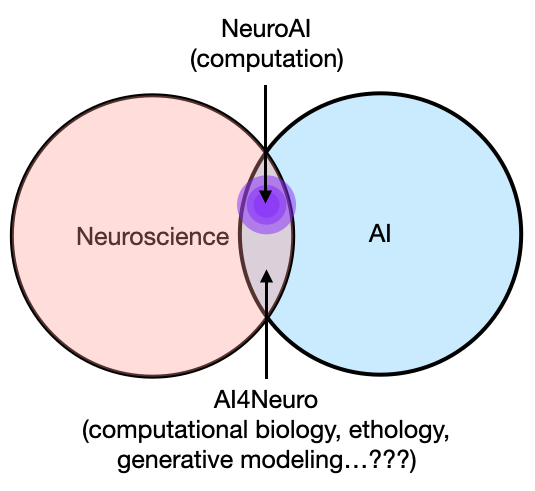I’ve been meditating since 2012, when I was at InteraXon for a bit over a year working on their first consumer brain feedback product for mindfulness meditation. Since part of the job was to understand the process and challenges of meditation better, all of us were committed - and effectively paid - to meditate and introspect. Looking back, this was another one of those things that I picked up by happenstance, but changed my life in wholly unpredictable ways, fortunately for the better.
Since then, I’ve walked away with a very informal personal practice, which more or less just involves sitting down for 20 minutes (30 on a good day) to pay attention to my breath, as well as the thoughts that come up. If you had to label it, I guess it would fall within the boundary of Vipassana meditation, though since I’ve never gone to a retreat or had any formal guidance (other than the one year at work), I’d say my meditations only scratch the very, very surface of that tradition/technique, but it helps to have read some books about meditation.
I meditate fairly regularly, though it’s more accurate to say that I do it regularly in spurts, probably averaging once every 2 to 3 days in any given year. In 2019, I meditated every single day for the first 7 months (using the iOS app Calm), then didn’t do it at all for the last 5 months due to a break in daily routine from traveling and then not coming back to it after I got back home. The contrast in my quality of life was very apparent after I started meditating regularly again in 2020.
Throughout these years, I’ve experienced a lot of the frustrations of meditation, of trying to do it well and failing, which I still suffer from to this day, as well as being hard on myself for not committing just 20 minutes a day to something that I know makes me better. At the same time, I’ve spent a lot of time reflecting on my practice and how it has improved my quality of life, how the meditation process can impact and be shaped by potential neural mechanisms (anecdotally, i.e., my own theorizing), and also the fine-grained experience within a session itself. I will use most of this week’s post to describe that last part, since I had taken notes earlier in the week immediately after a setting, but there are some more general reflections and some tips at the end. I’m curious if this sequence of events is relatable to other people during their meditations, because I’m wondering if there’s a invariant neural mechanism for this stereotypical timescale of change.
Any and all other advice and personal stories on meditation are very welcome and appreciated as well.
Dissecting a 20-minute Session
My practice is essentially to sit down in a quiet part of my apartment, typically first thing in the morning after washing up, and try to be still for 20 minutes with my eyes closed. I start by taking a few conscious deep breaths to open up the chest and straighten my posture. Aside: doing this has helped me realized how much more air one can breathe in with a straightened and engaged back, and it really makes me wonder if I’m getting hypoxia all day hunched over my keyboard at work. Sometimes I also count my breath upwards and see how far I can get. Some days I can barely make it pass 4 without trailing off, some days up to 30 or even 50 with a sense of focus, and some days with this very weird juxtaposition of states that is a continuous rumination of random thoughts in parallel with counting perfectly attentively. The counting is not so important, though, compared to noticing the action of breathing, and I usually focus on the sensation of air through my nostrils, or my stomach rising and falling. Even more important, and the main difficulty and frustrating part of meditation, is trying to notice when I’ve stopped noticing my breath and had latched onto a thought in my mind, or “taking a ride on a thought train.” In brief, my practice is to notice bodily sensations of my breath, and to notice and return whenever I’ve lost that attention.
After having done it for so long, I’ve noticed a very stereotypical sequence of events during a 20-minute session, with (what feels like) very regular timings. So twice this week I actually recorded how much time has passed when I hit each state, and it was largely in line with my own estimates without looking at the clock:
Start: as I said above, I start by taking a few conscious deep breaths and then letting go of that control, while noticing qualities of my natural breathing. At some point, probably within 30 seconds, I will have trailed off and gone for a ride on a thought train. This is typically related to things I need to deal with that day, or a problem I’ve been thinking about for a long time, be it personal or work-related. Actually, it usually feels like I’ve gone on an entire train trip, and it’s total chaos how thoughts seamlessly spiral and me latching onto them helplessly. They don’t feel like discrete thoughts one after another, and yet I always end up at some totally different and random destination. I think this is our default state of being during regular day-to-day life, which is to pass from one thought to another, otherwise referred to as rumination. Sometimes, if nothing very surprising happens during the day, I could go the whole day falling down this thought rabbit hole and not really noticing/remembering anything that truly happened.
4-5 minute mark: this is typically when I first notice that I’ve lost my breath, usually accompanied with a jarring “huh, that was a long thought” - and I know it’s been a long time. Qualitatively, re-centering on the physical sensations of my breath instead of a mental thought is similar to “oh I came on YouTube to find this specific song but just realized I watched random cooking videos for the last 20 minutes”. I start noticing/counting again, and eventually end up boarding another thought train shortly after. On better days, I will arrive at this point sooner, but not by much. What I find interesting here is that this first train of thought seems to evolve to completion (or a halt) after 4-5 minutes pretty consistently, and they usually feel very rational, i.e., nothing crazy happens like in an actual dream, where I’m flying off of a trampoline in a cape or something. Is this true of thoughts outside of a practice as well, when one is daydreaming? And how long does it take to lose the breath and fall down the thought hole, because that’s something I can’t really notice (by definition)?
7-8 minute mark: this is usually the second stage of noticing and, once again, getting off the train. It’s actually kind of crazy because 8 minutes have passed and I’ve really just sat here ruminating for that whole time, other than these few brief moments of lucidity. This is one of the most frustrating parts, and something people have trouble with as they start meditating. It’s probably the thing that causes people to quit because they think they just can’t meditate. The secret, I find, is to accept that this is just part of the meditation, because the trailing off happens to everyone (that’s not a zen master or monk, probably), and it’s exactly that trailing off that I’m practicing to notice during meditation so that it can be applied outside of the practice, in daily life. If there’s no trailing off, then there’s no meditation. It’s like lifting weights, if you get in the gym and can do 100 reps of something without difficulty, then you’re certainly lifting weights “well”, but ultimately missing the point of training.
Another interesting part is that my thoughts feel more and more concrete, but less and less realistic as time goes on. If I compare to my mind being a simulator, the first few minutes of thoughts feel like good approximations of real life, but they start off all over the place at once. Over time, I’m able to follow “individual thoughts” more closely, while they become more and more absurd and fantasy-like. In this stage, I’m much more able to be evaluative of the thoughts that come up, and a lot of emotional processing accidentally gets done, i.e., explicitly noticing that something is bugging me, usually in the form of irritation, anxiety, or uncertainty, but sometimes also bubbling excitement.
12-15 minute mark: depending on how cloudy or sleepy I feel, there are a variable number of moments of me getting on and off thought trains. But something pretty different, qualitatively, happens at around 12-15 minutes. You know the feeling of almost falling asleep in class or during a meeting, and you start to have a really absurd dream, only to snap out of it at some point while thinking “what in fresh hell was I just thinking about??”. This is that moment. Except, instead of snapping awake to the real sensory world, I snap awake to be fully conscious of and immersed in my body. Sometimes regaining perception of being in this daydream precedes actually snapping out of it, and there are a few seconds of anticipation because I know I’m about to enter this state of almost pure sensation (or as pure as I can achieve). It feels like regaining consciousness in a dream like lucid dreaming, but instead of entering a state where I’m able to manipulate my dream, the dream dissolves and I just perceive a calm emptiness.
Very often it also feels like I’m floating/levitating, like I’ve lost sensation of specificity to parts of my body. Another very common feeling is that my perception of the room is totally warped and I’ve lost track of how close the walls are to me (my eyes are closed this whole time). I can’t quite tell if I’ve lost sensation or if I’m over-sensing, like I can feel all of my physical self at once. This is very hard to describe. If the default state of being is to notice specific points on my body, like my breath through my nose or the feeling of an itch on a point on my arm, then in this stage my whole body instead feels like a homogeneous medium. It’s like a big balloon of still water, and any part of my body is instantaneously accessible to my consciousness. It also feels like I notice more of my visual field and in more detail simultaneously, even though my eyes are closed, so it’s like I can perceive the blobs circulating around much more clearly and distinctively. It’s weird because I’m obviously not seeing anything, and it doesn’t have the same quality as pulsating eyelids or anything, so sometime I think I’m directly perceiving spontaneous or recurrently residual neural activity in my visual cortex.
This is usually the peak of my meditation, and I haven’t figured out the factors that influence how long this state of clarity lasts. This is the state I’m always aiming for, and I feel more refreshed the longer I’m here, though I don’t always get here. It feels like I’ve gained a meta-level of awareness, like I’ve gotten off the trains, and now I’m standing on solid ground watching all the trains pass by around me. It doesn’t feel like I’m resisting the urge to get on any one of them, but that I’m simply able to see any and all of them at once, even though they lose this verbal thought-like quality to them. It feels like I can watch myself think the thought while not being carried away by the thought itself. I’m not still sure if it’s accurate to describe it as being able to watch a train, or that there are no trains at all. Paradoxically, the harder I try to stay in this state, the faster I exit it. The rest of the sitting is pretty much oscillating in and out of clarity, until the timer goes off.
Some Musings About the Brain
I go through that rough sequence of timing about 80% of the time I meditate, with the other 20% never making out of that first stage of total chaos, or just straight fall asleep. The reason why I find that sequence particularly interesting right now is because I’m working on a project looking at “intrinsic timescales” in the brain. Imagine dropping a pebble in a pool of water. How long it takes before the surface of the water is able to settle back to stillness again is an intrinsic property of the medium. For example, honey settles much faster than water does, and once it does, all traces of the pebble will be lost forever, and so in that sense, water has a longer intrinsic timescale.
The brain too is an excitable medium that continues to be active even when a majority of sensory stimuli are removed, which is a good thing. Without delving too much into actual-factual neuroscience, I wonder if those change points between stages of meditation correspond to particular timescales in the brain, e.g., once activity have naturally decayed long enough in frontal regions of the brain, which is constantly swirling around to maintain a short memory of past events (working memory) and state predictions into the future, I’m able to regain awareness of the now. But where in the brain is that meta-awareness implemented? Maybe even higher up regions, like the cingulate? In addition, the explicit training that is mindfulness meditation probably causes structural changes in the brain, both in the “medium” itself (probably recurrent networks in the cortex), as well as the attention-allocating subcortical (but wide-coverage) neuromodulatory systems. Maybe acetylcholine or dopamine has some long binding timescale that, once squirted into a part of the brain, biases activation of that circuit until it is physically depleted from that area. Then, maybe meditation and meta-awareness training is rerouting and/or emphasizing certain connections to the higher order parts of the brain (anterior and posterior cingulate, basically areas of the brain that we have little to no idea about what they correlate with in the sensory world). These are obviously my wild speculations, based on my anecdotal experience from meditating.
Personal Benefits and Insights from My Practice
Here’s something more concrete: meditation has improved my quality of life in a few ways. I think the most prominent of which is acquiring the ability to reset, by focusing on my breathing in moments during my day to day life. I’m not great at it still, because there are a lot of situations that call for a reset, but it doesn’t cross my mind to use it. With more regular practice, though, it becomes more available, and I use it to deal with all kinds of emotional responses, like nervousness, anxiety, paranoia that everyone hates me or that I look dumb and that my fly is open when I’m giving a talk, etc. I’ve been pondering for a while if there’s a way for the brain to selectively forget things, and this is as close as it gets without external intervention. It’s kinda like clearing the cache in the immediate memory. I also notice that it has a compounding effect. During stretches when I’m not meditating for weeks, the heaviness builds up and start to weigh on me, to the extent that I can’t focus on the important things I need to do because there are too many. In reality, none of them are that are important, and definitely not urgent, and clearing them from my mind regularly helps me refocus.
This reset button is not just a way to calm down like “whoooosaaaa”. It’s much deeper. it’s a button that ejects me from the fantasy world in my mind. It sounds like a temporary escape, and it is in some sense, because a lot of things require actual actions to resolve, not just a shift in state of mind to cope. But others, mostly internal and transient emotional responses to things, require just that moment of clarity for it to pass in order for us to more effectively deal with it. On an even deeper level, in conjunction with Buddhist philosophy and some other tools that I probably shouldn’t talk about here, meditation endows an experiential knowledge of transience/impermanence in the world, and that most things in the mind are transient fantasies constructed by reverberating brain activity, projected onto the world and then back into our senses. These fantasies are sometimes very useful for us to navigate the world and predict future consequences, but a lot of them are not, instead only acting as roadblocks or shaded goggles between our perception and reality. There are so many moments where I take a deep breath and suddenly see all the colors around me that I wasn’t seeing - flowers, trees, road signs, etc., and I wonder why I’m not seeing them all the time and what on Earth am I so wrapped up in in my head.
Some Advice for Practicing
Some practical advice on meditation: note that, obviously, I’m not an expert by any measure. What I’m sharing here is just something that made it easier for me to stick with this journey, but in no way does it make the meditation itself easier. Like I said above, meditation is as much of an exercise as lifting weight is, and I don’t think you ever get good at it, you just get better. In that light, it’s much more important to stick with the practice regularly, and to be able to transfer that skill outside of the practice into daily life. Those are pretty much the only goals. Once I realized this, I just had to make the commitment to sit down for those 20 minutes and try my best, even if some sessions are absolutely horseshit. Maybe this is easier for me to say now because I’ve experienced the benefits of a regular practice, as well as reverting to a more autopilot-like way of living when I’m not doing it regularly. So this will largely depend on your faith and trust in what I’ve described here. But lots of other people have written much more comprehensive guides and descriptions of their experiences (that’s an understatement).
For within a session: I can’t remember where I first heard this from, I want to say Trevor said this during a stand-up one morning, but I’m certain I didn’t come up with it: I’ve found that it’s much less frustrating when I think of meditation as trying to keep an inverted pendulum upright. Put it another way, think of it as balancing your body on one foot with your eyes closed. “To balance” is not an action you can actually perform, but a series of micro-adjustments to be made when you sense that you’re falling out of balance. When you are balanced, there’s nothing to do, and the best thing to do is just to be as relaxed as possible. The same applies to balancing your mind during meditation. The goal is to be still, attentive, and observe, in contrast to losing the balance by following a train of thought.
Meditating well, I believe, is not the ability to be still for as long as possible, per se, but the ability to notice and bring one’s attention back to center when it is lost. Obviously the latter enables the former, but they’re not quite the same. Back to the inverted pendulum. When it is upright, the best thing to do is to just let it be, and not to apply strong counteracting forces onto it. In fact, the more force one applies, the more probable it is that an imbalance will occur that actually kicks the pendulum out of balance, and the stronger that force is, the more wildly the pendulum will swing before it can settle again. In reality, I think our minds never halt, because that would mean brain death. In contrast, it’s more like a dynamic equilibrium in a chemical reaction, where things are constantly shifting, flowing, and morphing, but one can still observe it with clarity and stillness. The amazing part is that I am both the observer and the reaction.
I am both the river and the ferryman navigating through its currents.
Some resources that I enjoyed on this road:
- Being Peace by Thich Nhat Hanh: it’s a simple but beautiful introduction on the concept of Zen, impermanence but also the beautiful interconnectedness of the world, and a little about meditation. If nothing else, reading it makes you feel good.
- Siddhartha by Hermann Hesse: again, not a meditation book per se. But the story, which isn’t really about anything at all, imparts a larger sense of oneness in the world. There’s a lot to be learned from the flowing river.
- Wake Up to Your Life by Ken McLeod: this is a meditation guide, and a very good one, but it goes over the principles of Buddhism first. The audiobook is on Spotify for free. It’s also just very calming to listen to his voice.
- Mastering the Core Teachings of the Buddha by Daniel Ingram: currently just starting to (slowly) read this with Arthur. I’m like one chapter in, so I can’t whole-heartedly recommend it, but the book is written in a very straight-forward and balanced way. Enjoy it for its tone if nothing else.
Come for the meditation, stay for the music:




